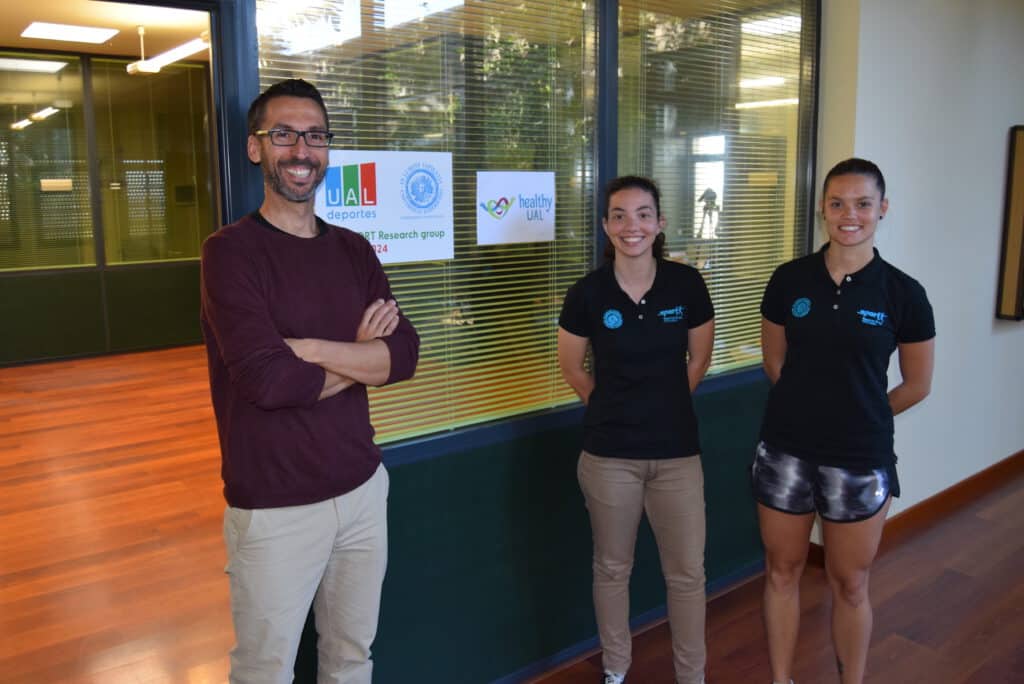UGR researchers conducted the most comprehensive systematic review to date on this topic, analyzing 18 scientific articles.
The The results show a positive association between physical activity and aerobic capacity on microbial diversity and composition, whereas that exercise interventions appear to positively influence microbial composition
Currently, the intestinal microbiota (the bacteria we have in our intestine) has become very important in research, since it is involved in nutrition, in various metabolic functions, and in the development and maturation of the immune system. When these bacteria are in balance, a state known as "eubiosis", our system is in a state of good health, but when this balance is broken, giving rise to a bacterial imbalance, called "dysbiosis", we find ourselves in a state of possible pathology.
Several studies have observed that people suffering from pathologies such as obesity, diabetes or cardiovascular diseases have a bacterial imbalance in their intestine. Moreover, in animal models, exercise has been shown to restore the state of eubiosis, i.e. bacterial balance, thus improving their health.
Researchers from the University of Granada (UGR) have carried out the most complete systematic review to date on this subject, in which they have analyzed the results of 18 articles: 9 observational studies, where physical activity and condition are measured; 4 studies with short duration exercise intervention and 5 studies with medium or long duration exercise intervention, in healthy adults.
The results, published in the journal Clinical and Translational Gastroenterology, show a positive association between physical activity and aerobic capacity on microbial diversity and composition, while exercise interventions seem to positively influence microbial composition.
But what is the reason for this to occur? Several studies have suggested that there is a bidirectional communication between skeletal muscle (the system directly affected by exercise) and the intestine. Skeletal muscle during exercise is able to release anti-inflammatory molecules, called myokines, which are able to modify the function of the intestine. In turn, the intestine produces short-chain fatty acids (SCFAs), which are involved in muscle function, thus creating the term muscle-gut or gut-muscle axis.
More bacterial diversity and composition
In conclusion, according to the 18 studies included in the review carried out at the UGR, the higher the level of physical activity and aerobic capacity, the better the bacterial diversity and composition and the higher the SCFAs in the feces of healthy adults.
In addition, exercise interventions seem to positively influence bacterial composition. However, the heterogeneity of the studies reviewed precludes drawing stronger conclusions. Therefore, although the current evidence points to exercise having a positive effect on the human gut microbiota, more and better studies are needed to confirm this. Finally, the mechanisms involved need to be further studied.
This study was conducted within the PROFITH-CTS977 Research Group and the Scientific Unit of Excellence Exercise, Nutrition and Health (UCEENS) by researchers Lourdes Ortiz Álvarez and Huiwen Xu, in collaboration with Borja Martínez Téllez, from the University of Leiden (Leiden University Medical Center).
Bibliographic reference:
Ortiz-Alvarez, Lourdes, Xu, Huiwen Martinez-Tellez, Borja. Influence of Exercise on the Human Gut Microbiota of Healthy Adults: A Systematic Review, Clinical and Translational Gastroenterology: February 2020 - Volume 11 - Issue 2 - p e00126 doi: 10.14309/ctg.0000000000000126

Infographic on the research conducted at the University of Granada.

The three authors of this article: Huiwen Xu, Lourdes Ortiz Álvarez and Borja Martínez Téllez.
Contact us:
Lourdes Ortiz Álvarez
Department of Biochemistry and Molecular Biology II of the UGR
E-mail: lortizalvarez7@ugr.es



